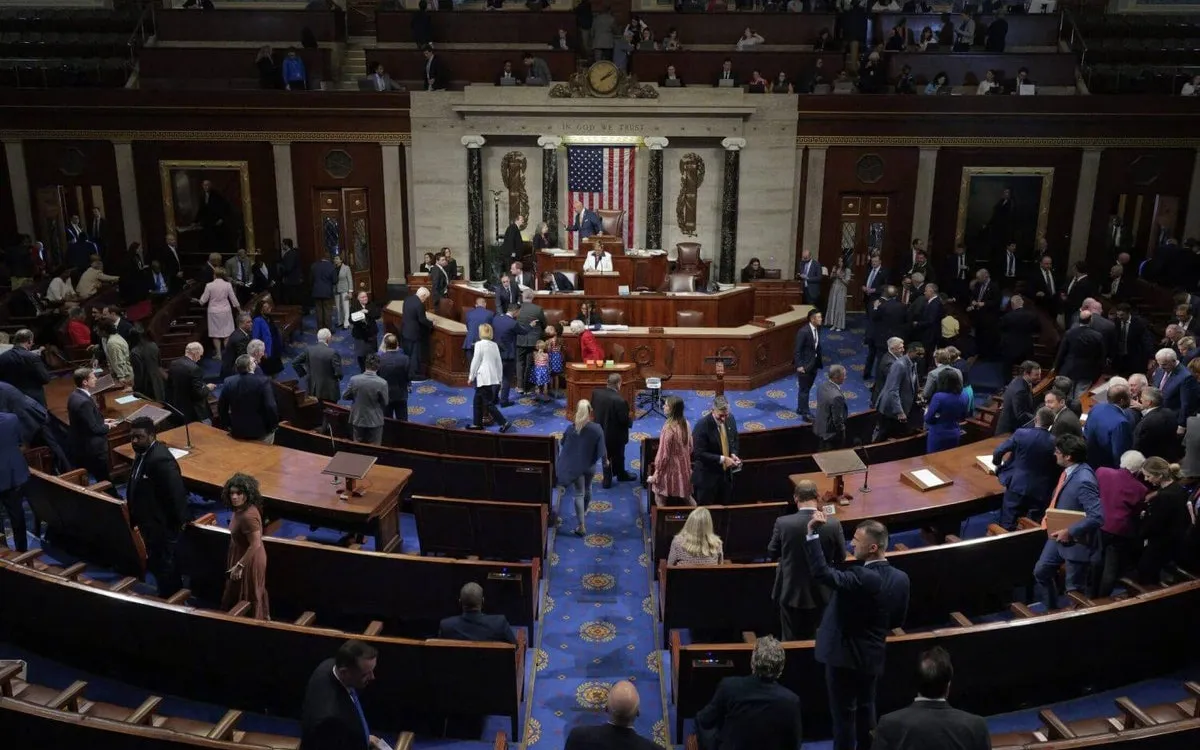
A significant development in the realm of college sports occurred on Wednesday, as a bill aimed at regulating athlete compensation made progress through a House committee. The legislation, known as the SCORE Act, has garnered attention for its potential to reshape how student-athletes are compensated by educational institutions. This advancement marks a crucial step towards a possible vote, but it is not without controversy, as public criticism of the proposed bill has intensified.
After years of advocacy from college sports leaders seeking federal assistance, the SCORE Act is the first piece of legislation to successfully navigate through committees in either chamber of Congress. Both the House Energy and Commerce Committee and the Committee on Education and the Workforce approved the bill, albeit with only Republican votes and no support from Democratic members. This approval paves the way for the bill to reach the House floor for a vote, which could occur as early as the upcoming fall session beginning in September, especially with summer recess approaching.
Tim Buckley, NCAA's senior vice president of external affairs, expressed optimism regarding the bill, stating, “Student-athletes have consistently asked for meaningful reform — and today’s hearings are a step toward delivering on that request.” He emphasized that the SCORE Act addresses many priorities of student-athletes, highlighting the NCAA's commitment to collaborating with Congress on bipartisan solutions to ensure the sustainability of college sports and the opportunities they provide.
Before the hearings took place, attorneys general from several states—including Florida, Ohio, New York, Tennessee, and the District of Columbia—sent a letter to committee chairs and ranking members expressing their strong opposition to the SCORE Act. They described the legislation as a “misguided effort” that would cement what they perceive as the “arbitrary and biased authority” of the NCAA. This opposition underscores the contentious nature of the bill and the varying perspectives on how to best regulate athlete compensation.
The SCORE Act, which has support from seven Republican and two Democratic sponsors, aims to prevent athletes from being classified as employees while mirroring terms from the recent House v. NCAA settlement. Notably, the legislation would officially eliminate most administrative restrictions surrounding athletes’ name, image, and likeness (NIL) compensation. However, it grants schools and conferences the authority to define what constitutes permissible compensation.
Should the SCORE Act pass, it would supersede existing NIL laws that differ from state to state and provide antitrust protections to the NCAA and its conferences. Critics argue that the proposed legislation favors the NCAA and powerful conferences at the expense of broader equity among all Division I schools.
Even if the SCORE Act successfully passes a House vote along party lines, it faces significant challenges in the Senate, where a total of 60 votes—including support from seven Democrats—would be necessary for its passage. Senator Maria Cantwell, a Democrat, has already expressed her opposition, labeling the SCORE Act as the “national championship of all heists.”
In a united front, players’ associations from various professional sports leagues have also issued a statement urging lawmakers to reject the SCORE Act. Dan Butterly, commissioner of the Big West Conference, conveyed his concerns in a letter to Rep. Michael Baumgartner, criticizing the bill for disproportionately benefiting wealthier conferences over the majority of Division I schools. He emphasized the need for financial safeguards and inclusive policymaking to ensure that reforms serve all student-athletes effectively.
Despite the hurdles, the movement toward the SCORE Act represents a meaningful turning point, as it is the first time lawmakers have prioritized addressing the complexities surrounding college sports. The Power 4 conferences released a statement underscoring their commitment to ensuring the future success of college sports through federal legislation.
Looking ahead, President Donald Trump has indicated his interest in engaging with this issue, potentially by forming a commission to explore solutions or issuing an executive order. A draft titled “Saving College Sports” suggests directing the Secretary of Labor and the National Labor Relations Board to tackle the debate over the employment status of college athletes, while also addressing various policy protections related to college sports.
The ongoing discourse surrounding the SCORE Act and its implications for college athletics reflects a critical period of transformation, with stakeholders across the spectrum advocating for reforms that align with the interests and rights of student-athletes.